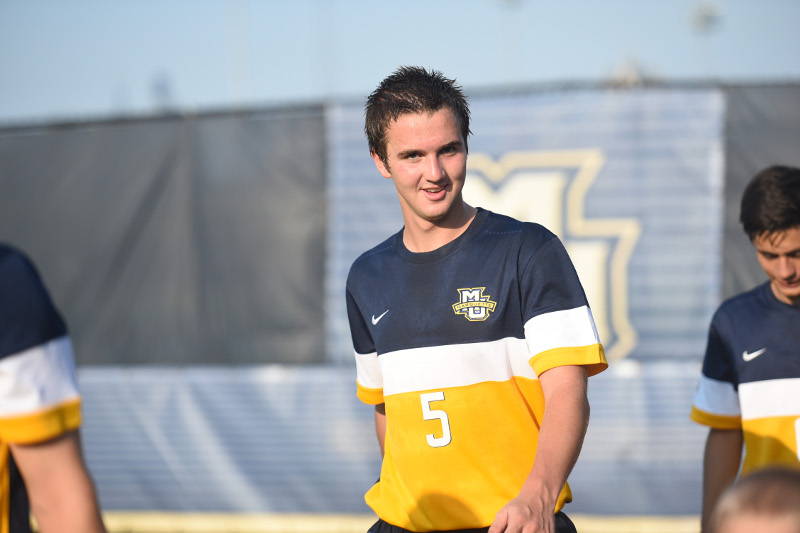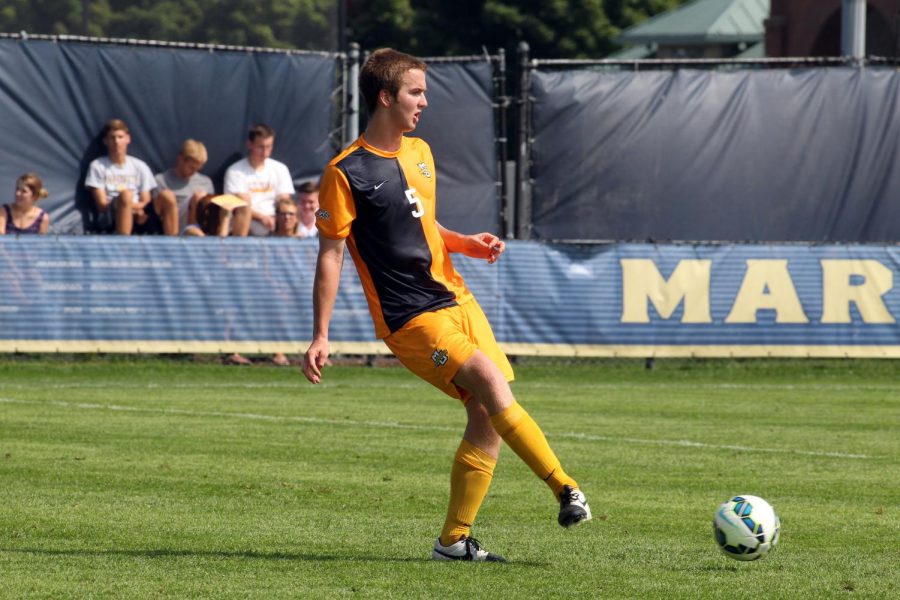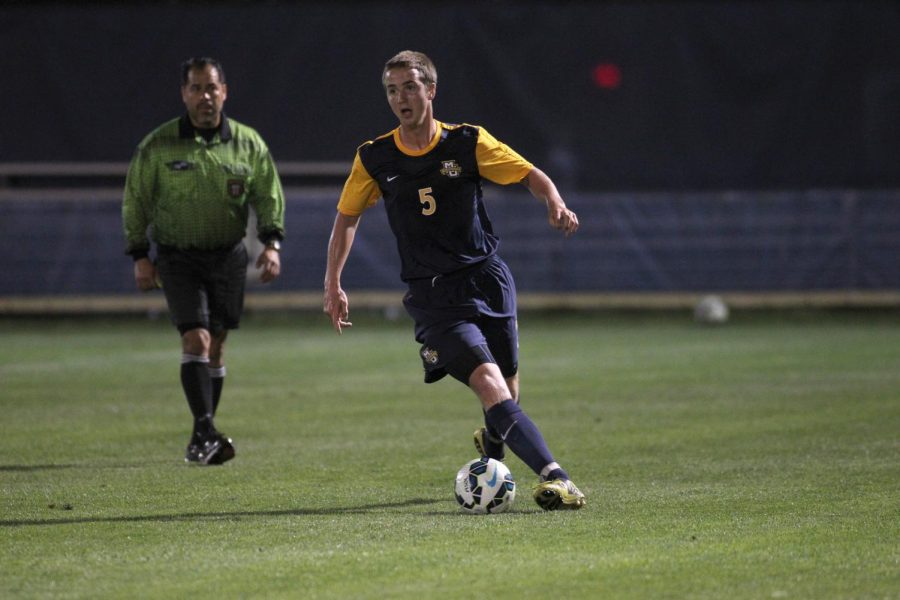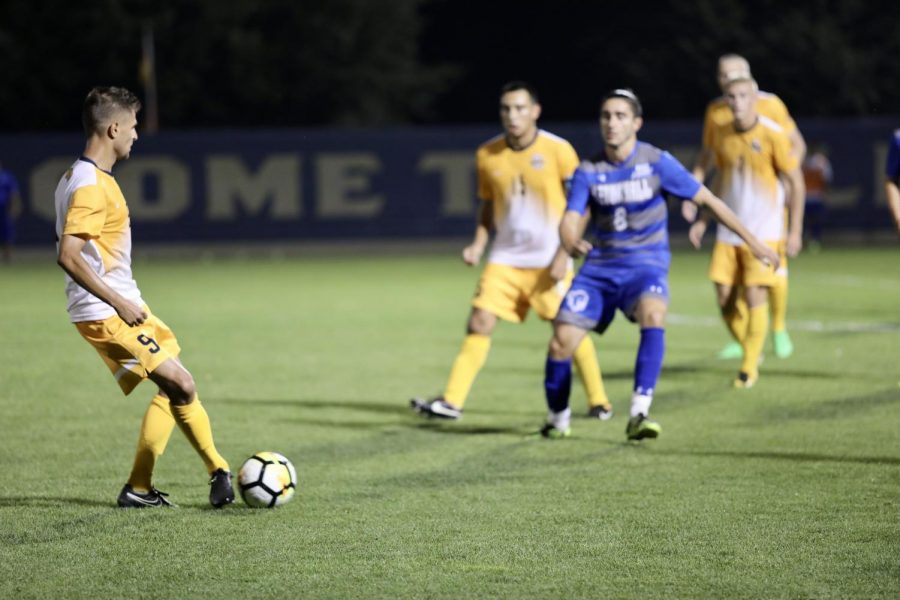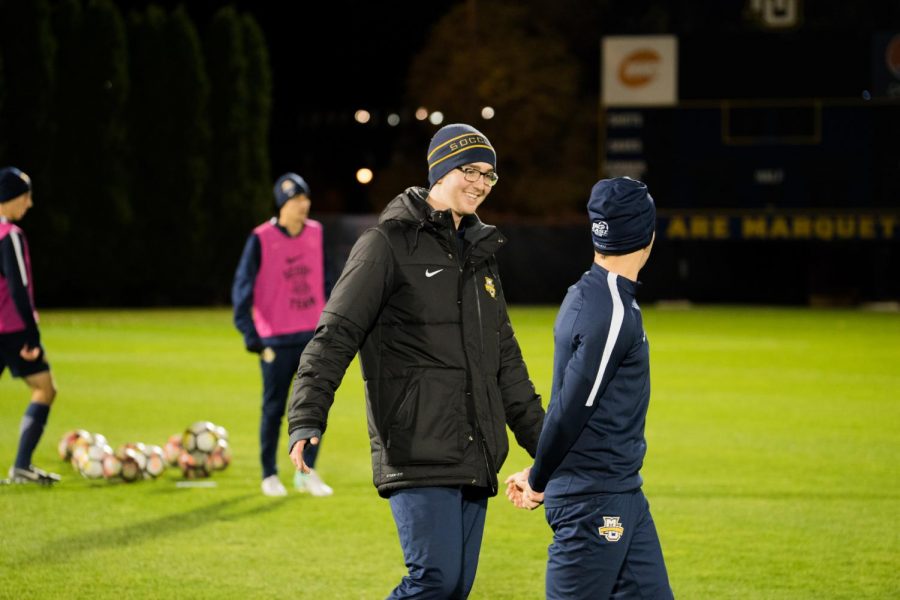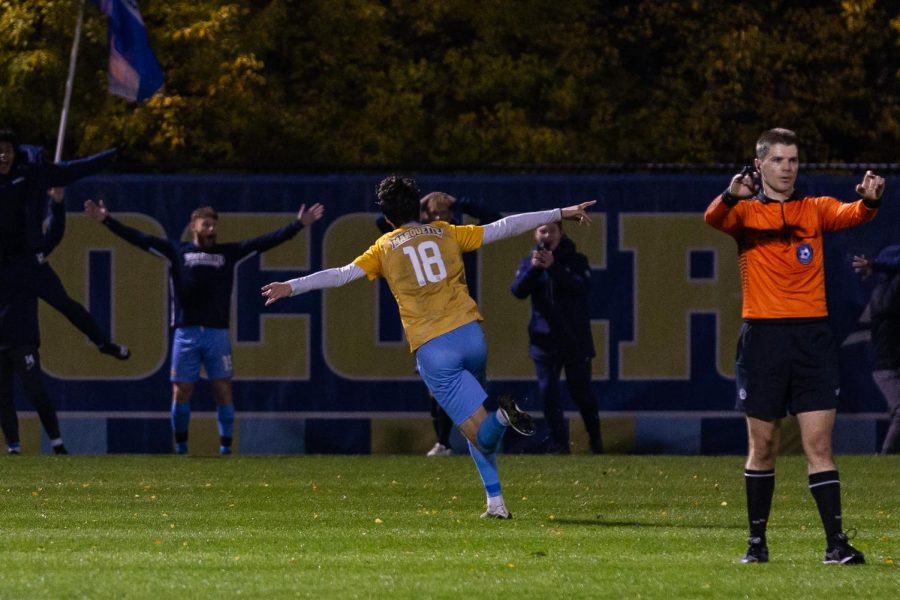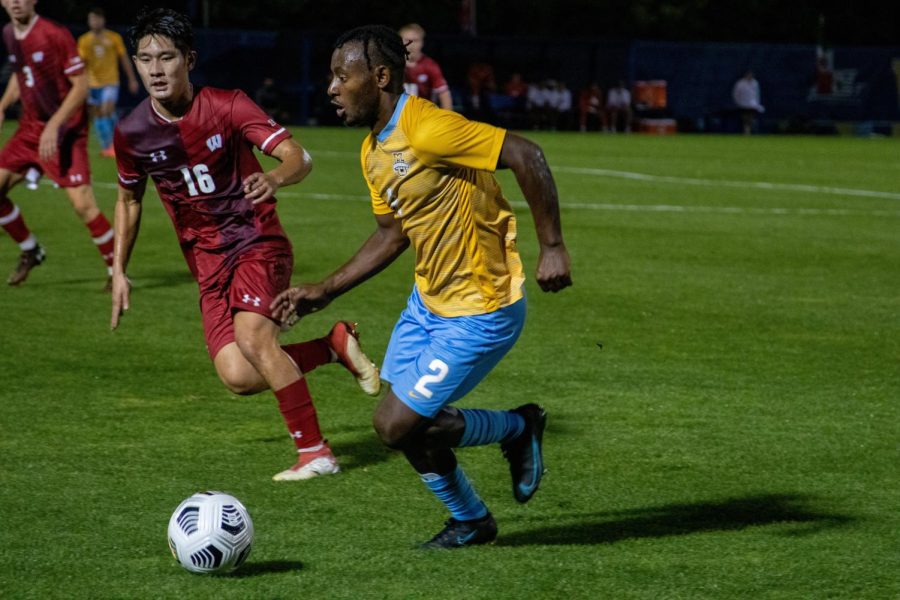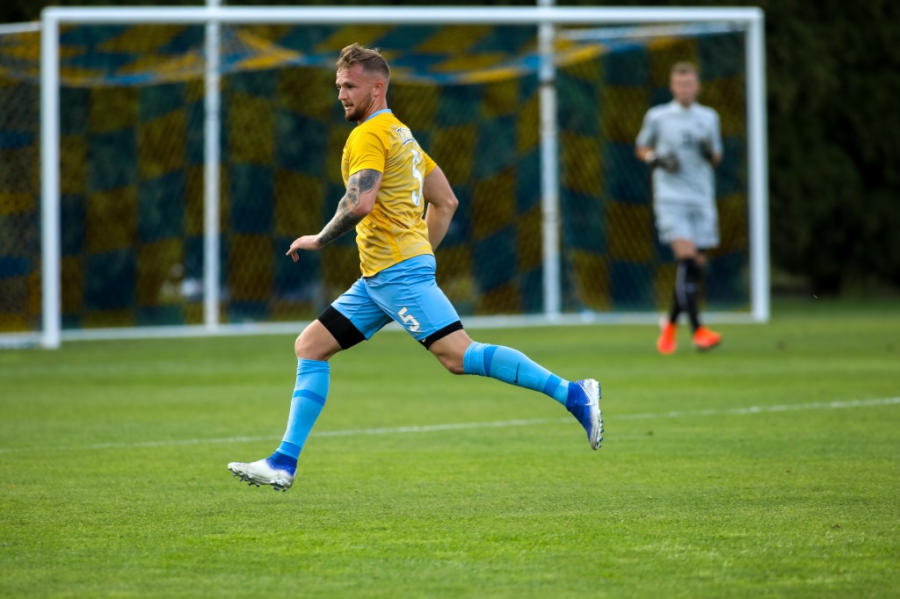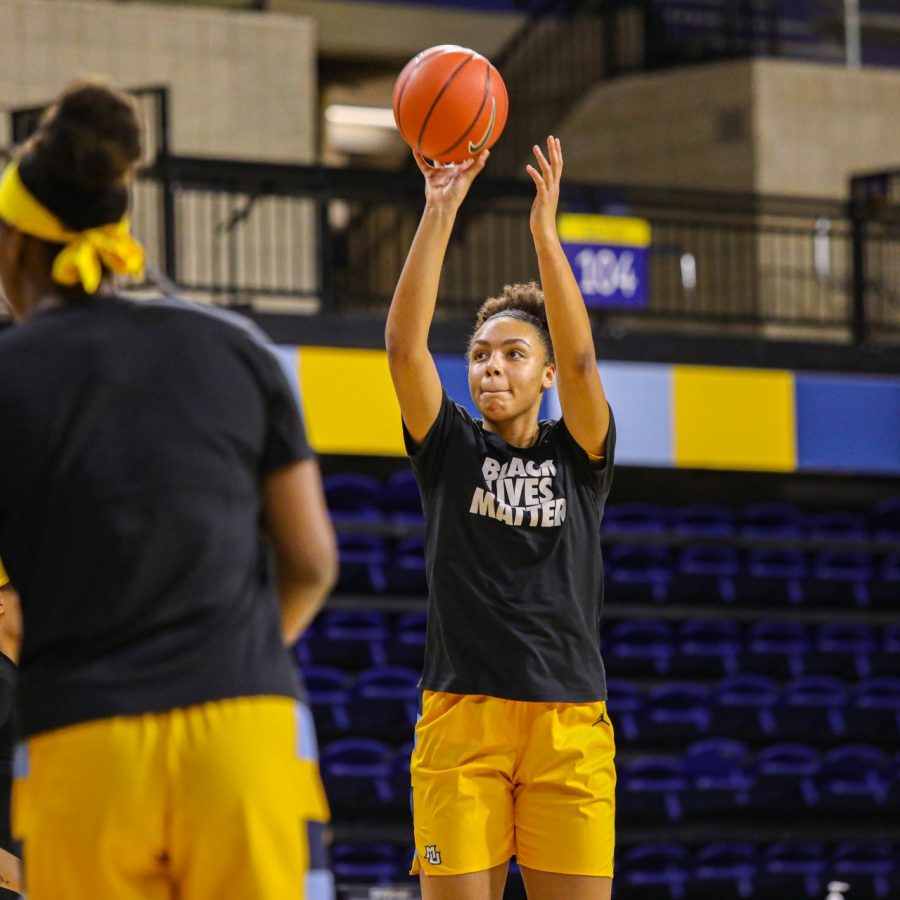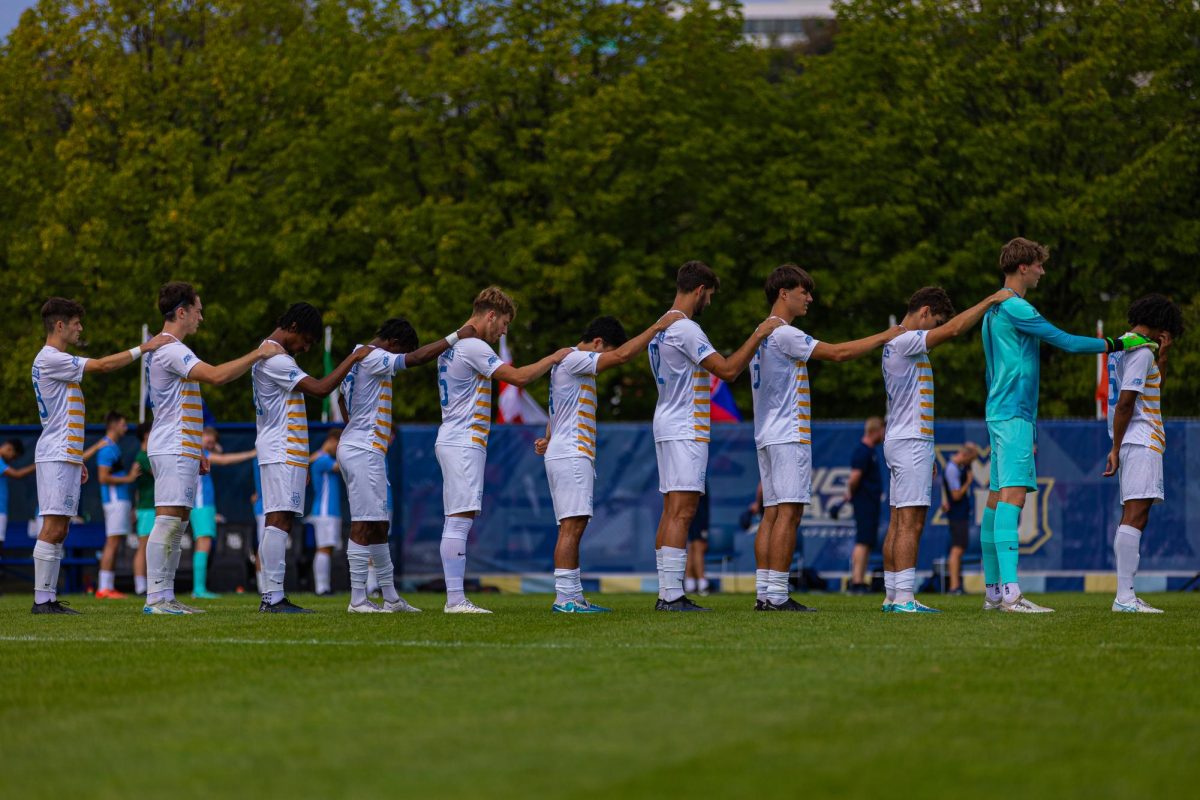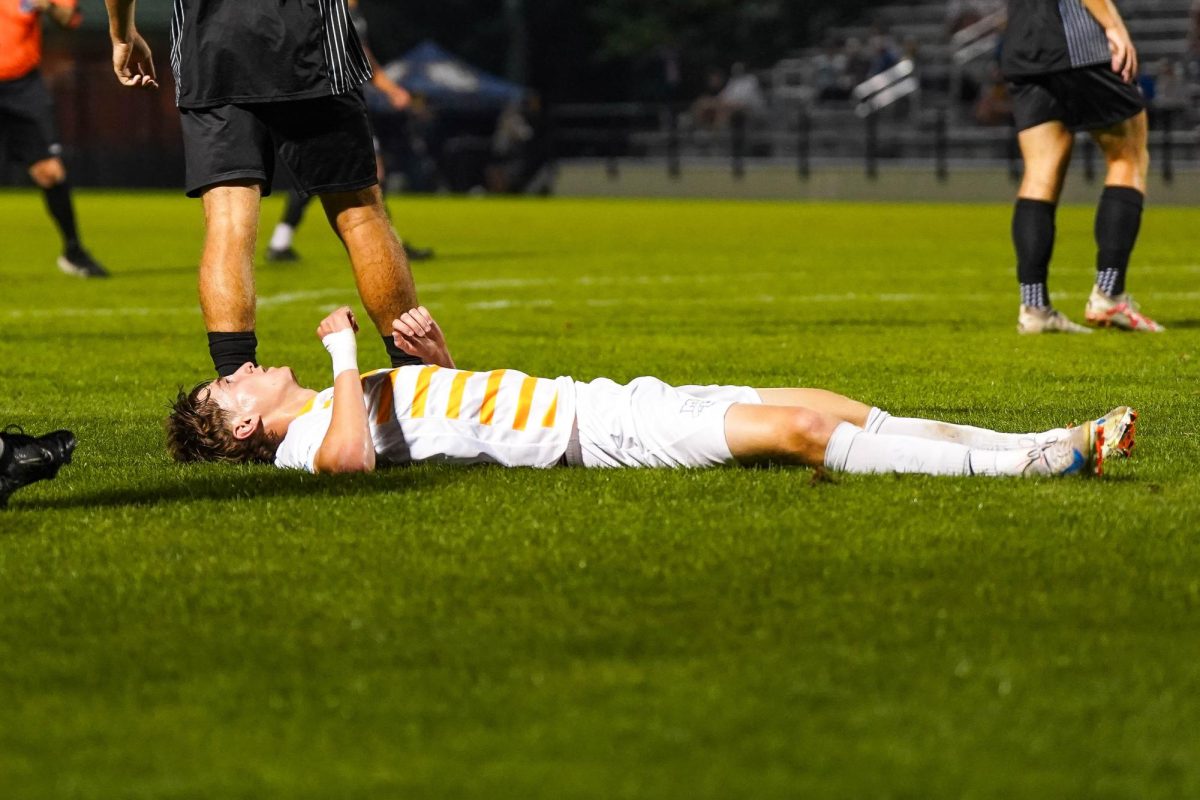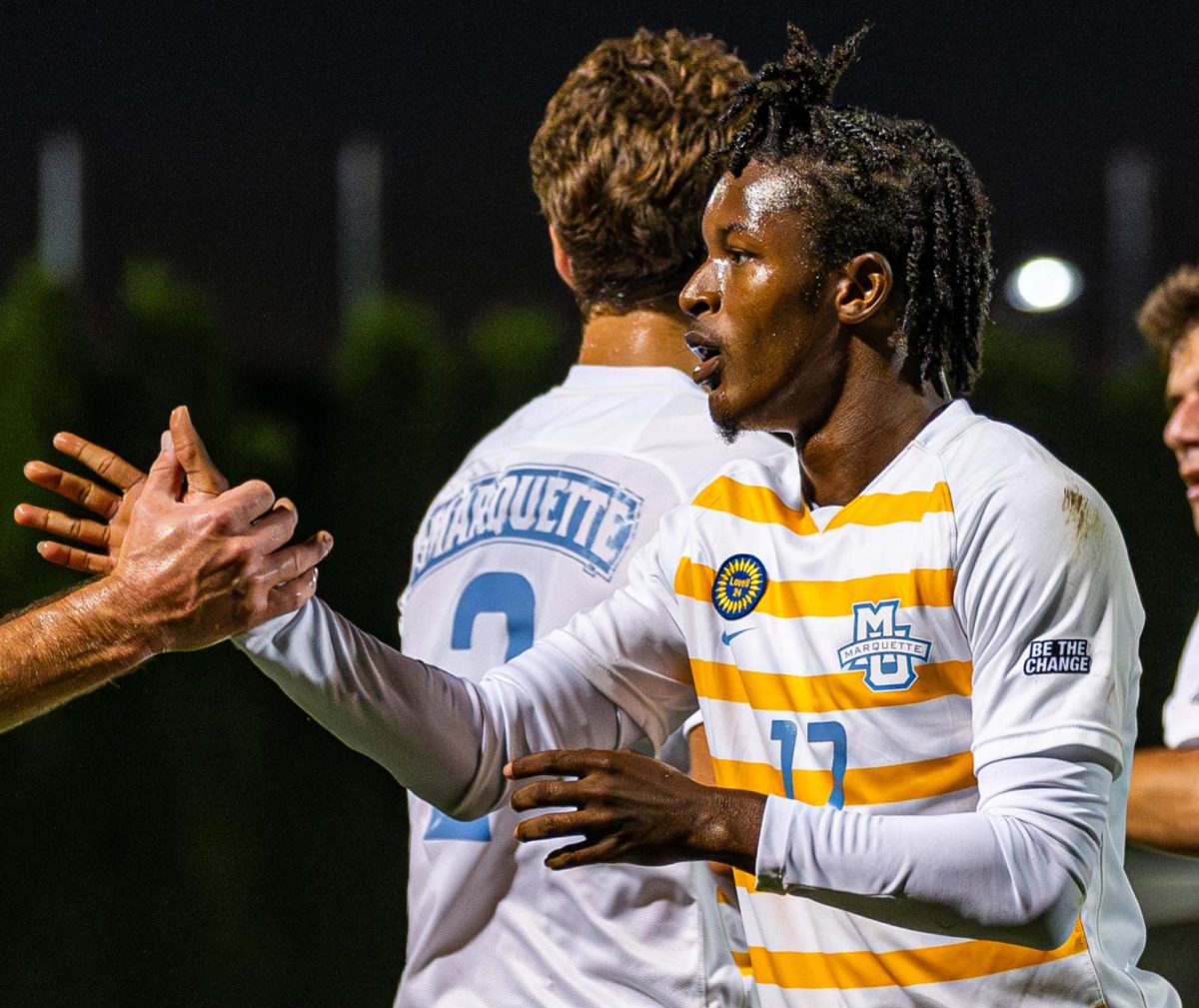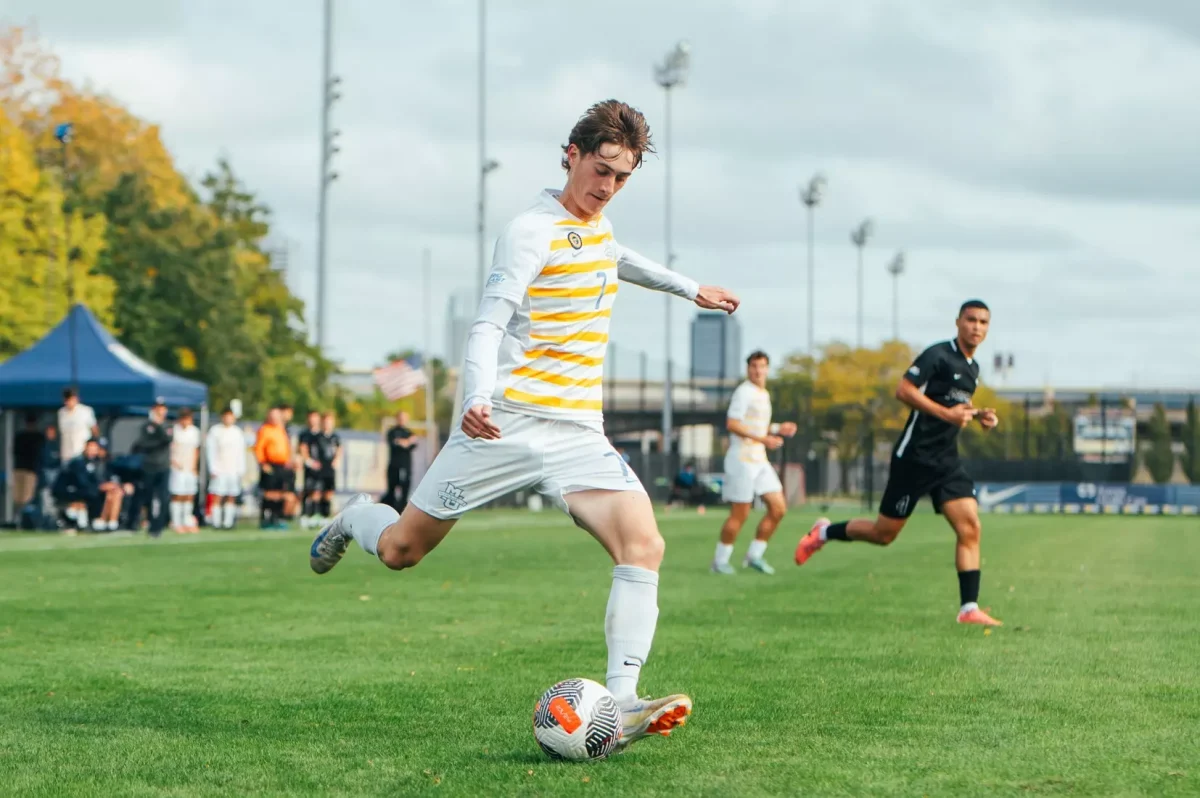When Marquette men’s soccer defender Danny Jarosz walks on the pitch for the team’s first match in the fall, he’ll find himself in an unusual position. Jarosz will begin his third season with the program, still waiting to play his first full game.
As a redshirt freshman, Jarosz was added to the starting lineup for the team’s season opener against Oregon State in August. Head coach Louis Bennett talked up the center back in the preseason, expecting him to play a vital role for the youthful but talented squad.
The match was chippy. He took a shot to the head from a forward’s shoulder in the first half, but felt no different after. In the second half he went for another header. This time he was undercut and hit his head on the ground. He knew something was wrong immediately. He played a few more minutes before asking for a substitute.
When the team returned to the hotel after the 1-0 loss, Jarosz fainted in the hotel and was quickly rushed to the hospital. Doctors told him he had a concussion, possibly caused by the combination of the two blows to the head.
Concussions were nothing new for the Marquette University High School graduate. Although he doesn’t know exactly how many he’s suffered, he’s been diagnosed with three concussions. He expected the process to be similar, returning to the team in three to four weeks. He had no clue he’d miss the entire season.
“The fall (was) probably one of the worst three months of my career,” Jarosz said. “I was in limbo on whether I was going to be able to play next week, next year or if I was ever going to be able to play soccer again.”
What made his lack of progress even more frustrating was the absence of any severe side effects. He experienced the expected extreme headaches, light sensitivity and need for rest in the immediate days, but they were not extreme enough to stop him from doing day-to-day activities long-term. Nagging headaches while doing homework kept him on the shelf.
He never knew when he’d be healthy enough to play. Concussions are difficult to predict, and each day is not necessarily better than the last.
“If you have a sprained ankle or something else you’re on a timetable,” Jarosz said. “You’re increasing your activity and getting back. With a concussion, you really don’t know what the next day is going to hold.”
He was forced to watch from the sidelines as the team failed to achieve many of its goals. The Golden Eagles missed the BIG EAST tournament for the first time since the 2008-’09 season, despite admirable play from Ruben Sanchez, who moved from midfield to take Jarosz’s spot in the lineup.
Frustration mounted for Jarosz, but he still wanted to contribute to the team. He was still at many practices, trying to help out Sanchez as much as he physically could.
“Even though he was concussed, he still knew a lot more than me at center back,” Sanchez said. “On the sideline he talked to all of us … He was like one of the assistant coaches.”
He was fully cleared by doctors in December, but the journey back isn’t complete yet. He said he’s been 100 percent physically for the past seven or eight weeks, but the mental side is still a work in progress. He said the key is believing he is still capable of playing at the same level he did pre-injury.
He returned to game action in the team’s first spring game, a 1-0 victory against Northwestern. Although he didn’t play as well as he would have liked, that wasn’t his main focus.
“Anytime you have a scary injury like that when it takes so much time to get back and the career is in jeopardy, that first game back (you’re) just happy to play soccer again, thankful to be out there with my teammates,” Jarosz said. “It kind of puts what soccer has done in my life into perspective.”
Jarosz doesn’t like to complain, even after a nightmare season. Instead of focusing on what is or isn’t fair, he’s looking forward to another opportunity to start for the Golden Eagles.
“Coming here, I had a whole different picture of my career,” Jarosz said. “Nothing really goes how you plan. It’s how you adjust to it. It’s how to respond to adversity and the struggles that you face … There’s a quote I have hanging in my locker: ‘Situations turn out the best for people who can make the best of the way situations turn out.’ That’s something I really adopted.”

